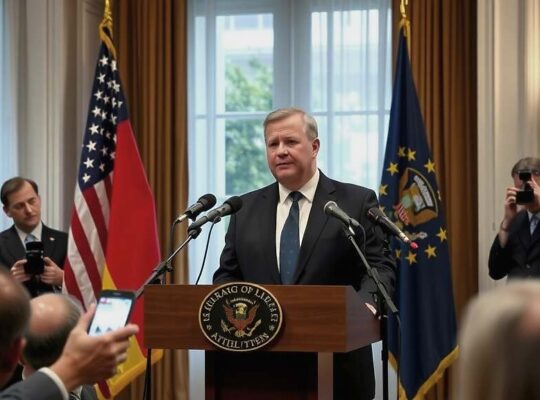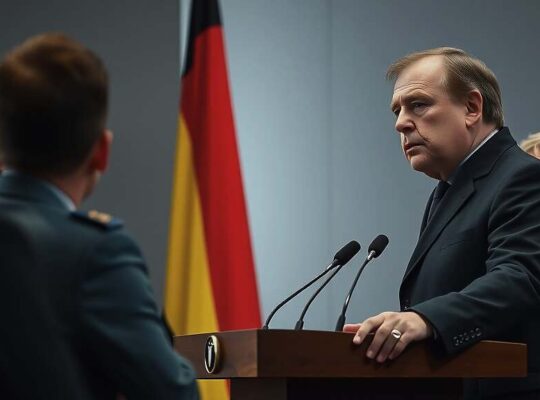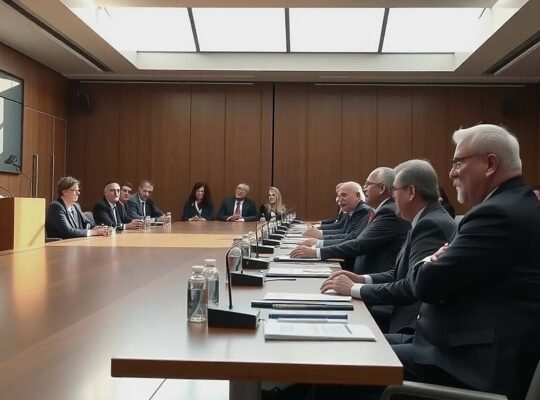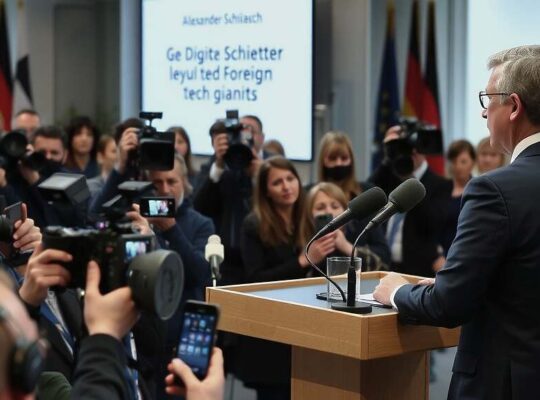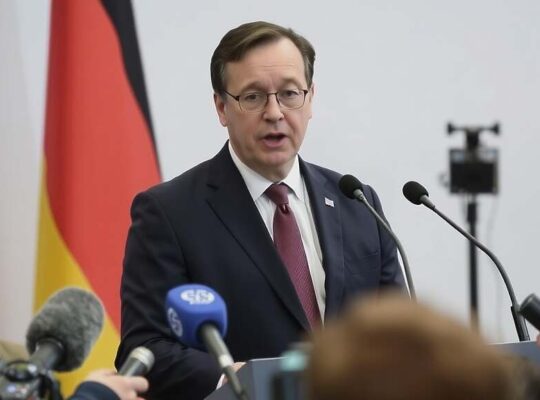A simmering debate within the conservative Union bloc is sparking alarm within Germany’s political landscape, with discussions about softening the established firewall against the far-right Alternative for Germany (AfD) party. The potential shift, signaled by prominent former CDU figures, is being met with sharp criticism and accusations of undermining the fragile coalition government.
SPD General Secretary Tim Klüssendorf has voiced serious concerns, labeling the considerations as a “fatal signal”. In an interview with “Der Spiegel”, Klüssendorf emphasized the fundamental principle that “right-wing extremists are not combatted by cooperating with them”. He urged Union leaders to demonstrate responsibility and maintain the impenetrable barrier against extremist ideologies, regardless of the challenges posed by current parliamentary configurations.
The potential rapprochement, championed by former CDU Secretary General Peter Tauber, former Defense Minister Karl-Theodor zu Guttenberg (CSU) and former head of the CDU’s fundamental values commission, Andreas Rödder, in a recent “Stern” magazine article, has exposed deep divisions within the conservative camp. Their arguments for reviewing the uncompromising stance against the AfD have triggered a backlash even within the CDU itself, with Schleswig-Holstein’s Minister President Daniel Günther and Education Minister Karin Prien publicly denouncing the proposals.
Clara Bünger, the Left Party’s domestic policy spokesperson, echoed Klüssendorf’s critique, characterizing the move as a “test balloon” to gauge how far the Union is willing to drift towards the right. Bünger alleges that the discussions openly challenge the terms of the coalition agreement and should be particularly troubling for the SPD, highlighting the potential for instability and policy divergence.
The emerging tension underscores the delicate balance of power within the German government and the escalating anxiety surrounding the AfD’s growing influence. While proponents of a softened approach argue for pragmatic engagement to address common ground, critics warn that any deviation from a firm stance risks normalizing extremist views and threatening the core principles of German democracy. The coming weeks are likely to see continued scrutiny and debate as the Union navigates this potentially divisive issue.



